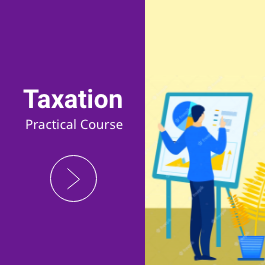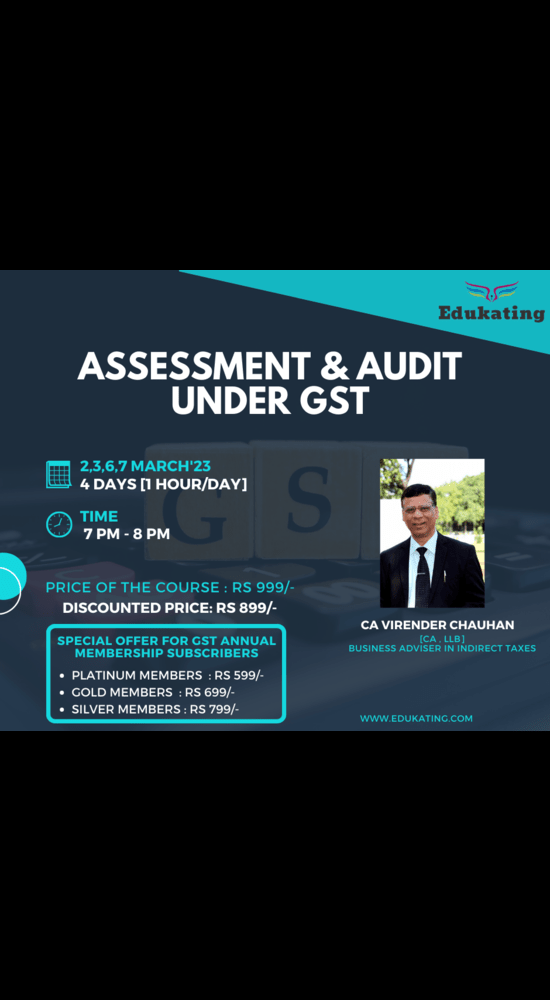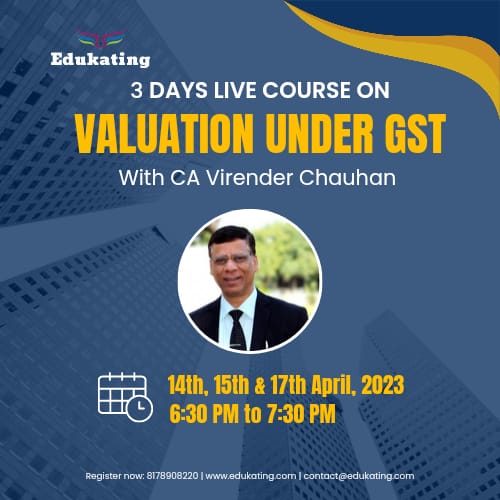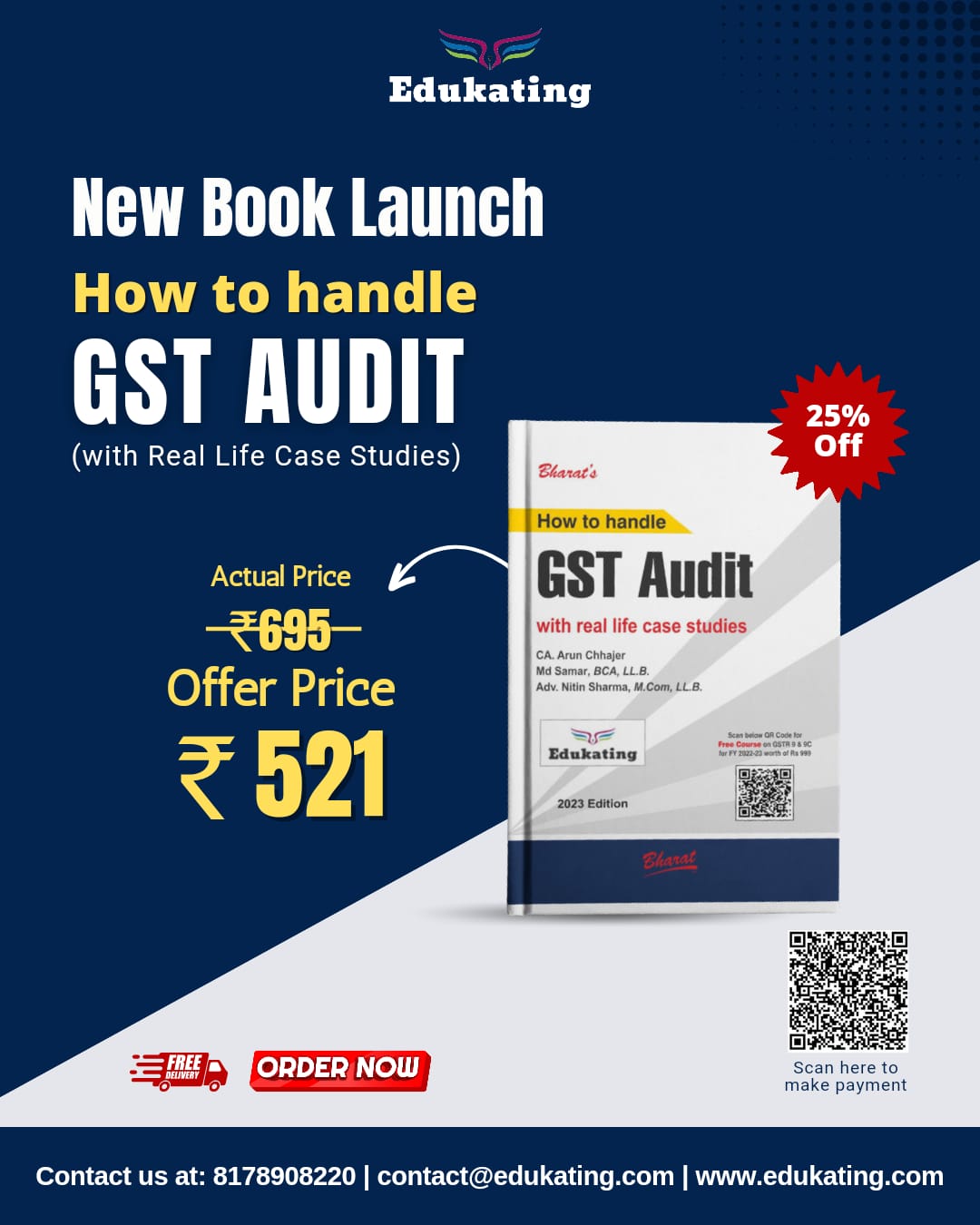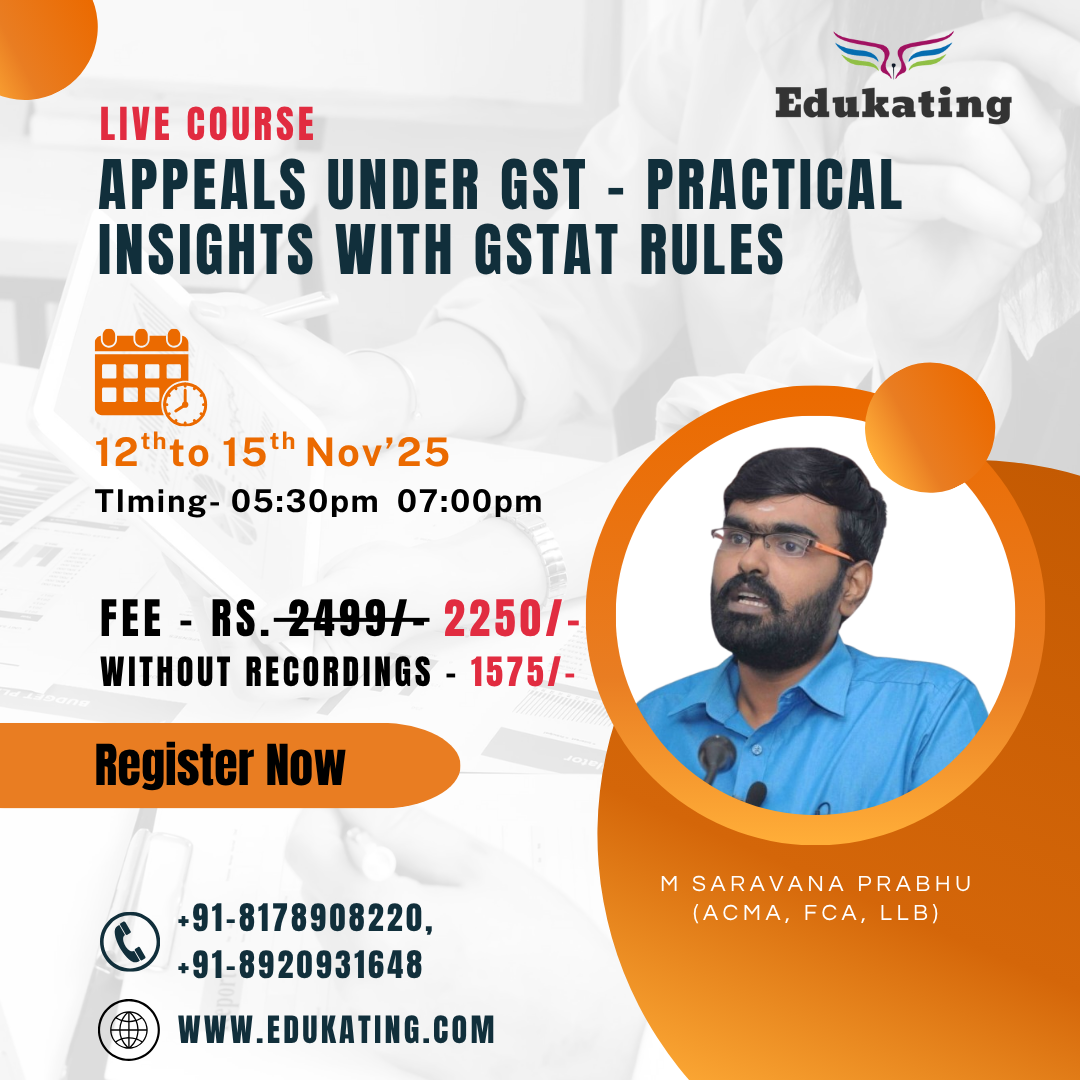PROVISIONS OF POWER TO ARREST
Topics Covered
- Definition of Arrest
- Power to Arrest
- Section 69 of CGST Act
- What is the difference between cognizable and non – cognizable offence
- Notification No 13/2022 issued by CBIC
- New Guidelines issued by CBIC
- When can a person be arrested under GST
- Section 41 & 41A of CrPC linked with Section 69 of CGST Act
Definition of Arrest
The term arrest is not defined in the Code of Criminal Procedure (CrPC) but it means to take or keep in custody by authority of law.
The United Nations Programme on Criminal Prevention and Criminal Justice, incorporates concept of arrest and arrest has been defined as “the act of depriving a person under governmental authority for the purpose of taking that person into detention and charging the person with a criminal offense”.
Power to Arrest
Power to arrest is set out in Section 132 of CGST Act. Section 132(1) of CGST Act states Whoever commits, or causes to commit and retain the benefits arising out of, any lists out 12 different types of offences from clauses broadly dealing with
- Supplying Goods or Service without raising Invoice (Cash Sales)
- Raising Invoice but not supplying goods or service (Fake Invoice)
- As a recipient availing credit on such invoice
- GST collected but not deposited to government within 3 months from the Due Date of payment of taxes.
Section 69 of CGST Act
Section 69(1) of CGST Act, delineates the power of the Commissioner to order the arrest of a person whom he has REASONS TO BELIEVE, to have committed an offence, which is cognizable and non – bailable.
The term ‘Reason to Believe’ is not defined anywhere in GST Law, but before conducting the search and seizure, there must be existence of reasonable belief/ reason to belief, which should be formed on basis of credible material, though we have a judicial view to it. In the case of Jensen Enterprises v/s Collector of Customs – Madras High Court wherein the High Court observed that reasonable belief is must at the time of search and seizure and not at the time of issuance of Show Cause Notice or at the stage of adjudication.
For example – There was a search and seizure proceedings conducted at business premises of Mr. A wherein the authorities found a loose paper wherein unaccounted purchase of Rs 20 Lakhs recorded by Mr. A from Mr. B. Such purchase was unrecorded in returns of Mr. A. Can this be ground for form a ‘Reason to Belief’ conducting inspection/search and seizure at the premises of Mr. B?
Answer – It is need to be appreciated here that ‘Reason to Belief’ must be based on credible material. Since loose papers are not a credible material and it is mere suspicious that tax may be evaded.
What is the difference between a cognizable and no – cognizable offense
Cognizable offences are those, where the police can arrest a person without any arrest warrant. They are serious crimes like murder, robbery etc.
Non – Cognizable offences are those, where a police officer cannot arrest a person without a warrant issued by competent authority. They are less serious crimes like public nuisance, assault.
Notification No 13/2022 issued by CBIC
The department had issued a Notification Number 13/2022 which gives power to extend the time limit under section 168A upto 30th September 2023. This section enables tax officers to issue demand orders to taxpayers (non – fraud cases) for unpaid or underpaid taxes, interest, fees and penalties.
Moreover, the pandemic period between 1st March 2020 – 28th February 2022 must be excluded to arrive at the limitation period for issuing a demand order under this provision.
New Guidelines issued by CBIC
From the judgment of the Supreme Court in Siddharth v/s The State of Uttar Pradesh and Anr, dated 16th August 2021.
The guidelines add conditions precedent to arrest, the procedure for arrest, post – arrest formalities, and the manner in which the reports need to be sent. Before placing a person under arrest, the legal requirements must be fulfilled, the reasons for an arrest must be unambiguous, and must be based on credible material.
The Principal Commissioner or Commissioner should consider the role of the person involved, the evidence available, and the commission of offence under Section 132 of CGST Act. The arrest memo must in compliance with the directions in DK Basu v/s State of West Bengal. A separate arrest memo must be made and provided to each arrested person and the arrest should be made with minimal use of force and publicity.
Sub –Section (4) and (5) of Section 132 of the CGST Act have been amended to modify the right bail, and in cases where conditions for bail are not satisfied then the arrested person be produced before the Magistrate within 24 hours of arrest and also handling over the person to police custody in case of necessity. The instructions also mention making of prosecution complaint under Section 132 at the earliest and also maintaining of bail register.
For further details please refer Instruction No 02/2022-23
https://taxinformation.cbic.gov.in/view-pdf/1000435/ENG/Instructions
When can a person be arrested under GST
| Some important clause of Section 132(1) and nature of offense | Amount of tax evaded/ wrongly availed or utilized/ Refund taken wrongly | Punishment | Nature of Offense | |||
| Maximum | Minimum | |||||
| Supply goods or service without raising invoice | More than 5 Crores | 5 Years with Fine | 6 Months | Cognizable and non – bailable | ||
| More than 2 Crores less than 5 Crores | 3 Years with Fine | |||||
| More than 1 Crore but less than 2 Crores | 1 Year with Fine | Non – Cognizable and Bailable | ||||
| Raise Invoice but not supplied goods or service | More than 5 Crores | 5 Years with Fine | 6 Months | Cognizable and non – bailable | ||
| More than 2 crores but less than 5 crores | 3 Years with Fine | Non – cognizable and bailable | ||||
| More than 1 crore but less than 2 crores | 1 Year with Fine | |||||
| As a recipient avails credit on such invoice | More than 5 Crores | 5 Years with Fine | 6 Months | Cognizable and non – bailable | ||
| More than 2 Crores but less than 5 Crores | 3 Years with Fine | Non – cognizable and bailable | ||||
| More than 1 Crore but less than 2 Crores | 1 Year with Fine | |||||
| Tax collected but not deposited to government within 3 months from the due date of payment of tax. | More than 5 Crores | 5 Years with Fine | 6 Months |
Cognizable and non - bailable Non - Cognizable and bailable |
||
| More than 2 Crores but less than 5 Crores | 3 Years with Fine | |||||
| More than 1 Crore but less than 2 Crores | 1 Year with Fine | |||||
Section 41 & 41A of Cr.P.C linked with Section 69 of CGST Act
It is appreciated here that arrest should only be made after reasonable satisfaction reached after due investigation with regard to genuineness of the allegation.
Section 41 of Cr.P.C provides conditions precedent for making arrest. Further, the Honorable Supreme Court in the landmark judgment of Arnesh Kumar v/s State of Bihar – 2014 has emphasized that for making arrest, the police must ensure for satisfaction of all conditions as set out under Section 41 of Cr.P.C.
Section 41A of Cr.P.C provides that a notice shall be issued to the person against whom complaint has been made or creditable information has been received or reasonable suspicion exists and he shall not be arrested if he complies with the notice.
Section 69(1) of CGST Act clearly delineates the power of Commissioner to order the arrest of a person whom he has reasons to believe, to have committed an offence which is cognizable and non – cognizable offence and warranting his arrest, then the safeguards before arresting a person, as provided in Section 41 & 41A of Cr.P.C may have to be kept in mind.
AUTHOR VIEW
Section 69(3) of CGST Act read with section 132 of the CGST Act it is need less to mention here that officials under GST are not equal with Police officer in-spite of the fact that while granting bail for bailable offence committed under GST, they enjoy the same power as enjoyed by the Police Officer. Power of Arrest should not be exercised at the whims and fancies of any officer or for the sake of recovery or terrorising any businessman or create an atmosphere of fear, whereas it should be exercised in exceptional circumstances during investigation.
DISCLAIMER
The views expressed in this article are those of individual author’s writing in his individual capability only. The information provided in this article does not intend to constitute legal advice, instead all the information, content, and all the materials available in this article are for general purpose only. Readers of this article should contact their attorney to obtain advice with respect to any particular legal matter.





